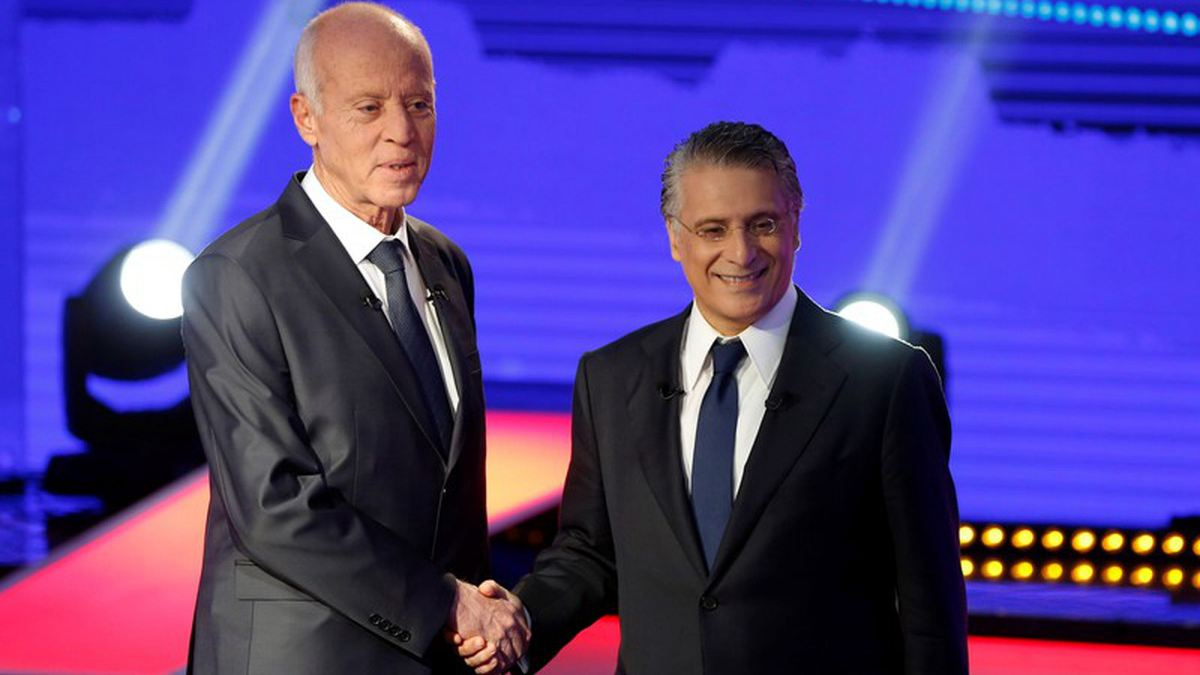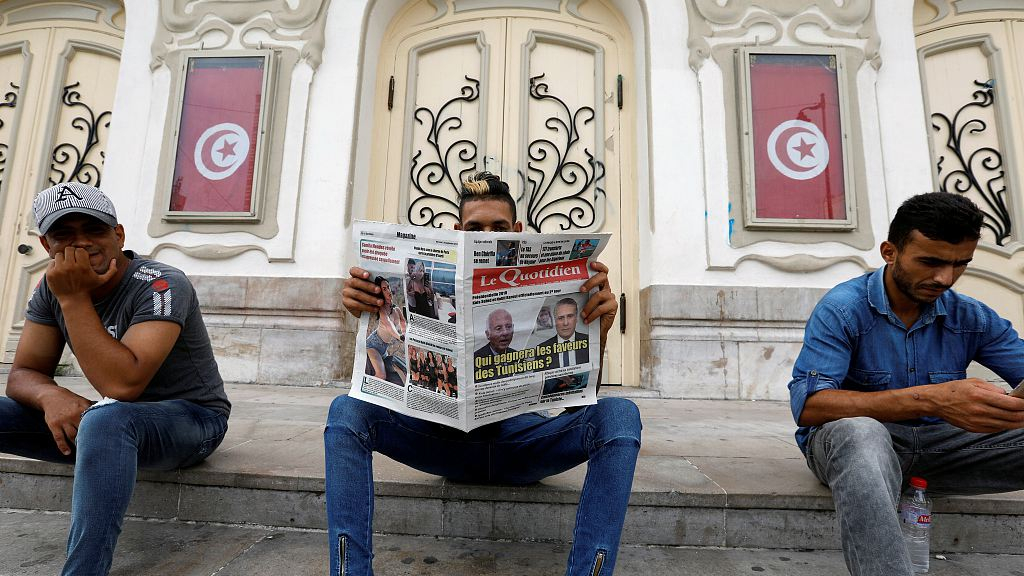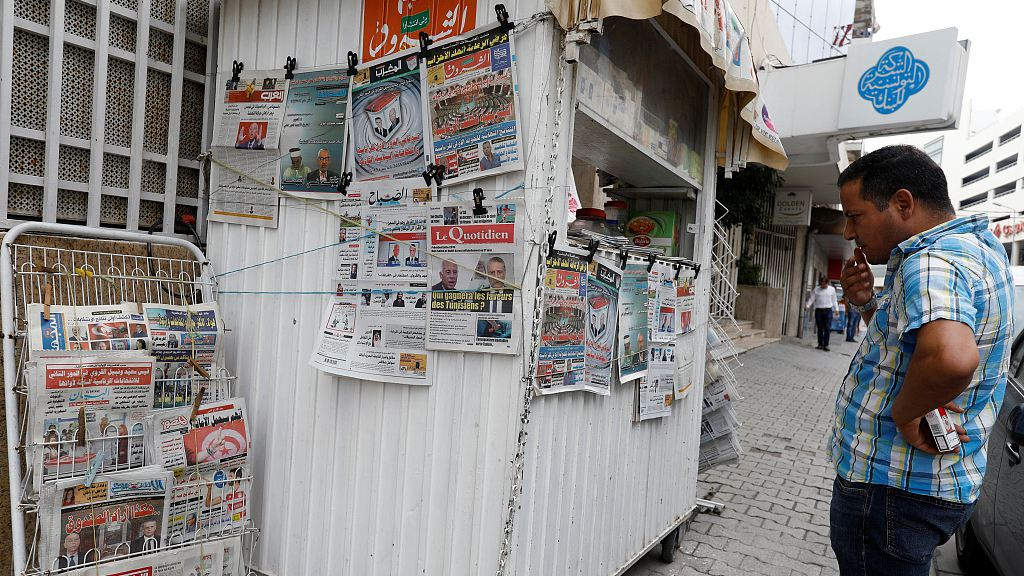Kais Saied, a political outsider who is backed by Islamists and leftists and wants to remake national politics, won a landslide victory in Tunisia's presidential election which he hailed as a "new revolution."
Saied won 73 percent of the votes cast in Sunday's election, according to preliminary official results released by the electoral commission on Monday. The voter turnout was 55 percent. His opponent, Nabil Karoui, had already conceded defeat.
Saied's victory is a stinging rebuke for a governing elite that has failed to improve living standards or end corruption since the 2011 revolution in the North African country that introduced democracy and ushered in the "Arab Spring."
Saied, a 61-year-old retired law professor, wants to introduce an experimental form of direct democracy. However, he has no political party of his own and faces big challenges including high inflation and unemployment.
"What I have done is a new revolution," Saied told a crowd of supporters gathered at his home in the Mnihla district on the outskirts of Tunis after his landslide victory became clear. "I tell Tunisians that you have impressed the world."
His opponent Nabil Karoui, a media mogul, was detained in August pending a verdict in his trial for money laundering and tax evasion – accusations which he denies – and was released only last Wednesday. However, Karoui conceded defeat and congratulated him several hours before the preliminary results were announced.
Challenges
Even with a large mandate, the new president has less direct control of policy than the prime minister and both will quickly face a series of challenges.
Tunisia has a deeply fragmented legislature in which the largest party, the moderate Islamist Ennahda, has only 52 of the 219 seats.

Tunisian presidential candidate and leader of Heart of Tunisia Nabil Karoui (R) and Independent Tunisian presidential candidate Kais Saied (L) shake hands during a televised debate before the second round of the presidential elections in Tunis, Tunisia, October 11, 2019. /VCG Photo
Tunisian presidential candidate and leader of Heart of Tunisia Nabil Karoui (R) and Independent Tunisian presidential candidate Kais Saied (L) shake hands during a televised debate before the second round of the presidential elections in Tunis, Tunisia, October 11, 2019. /VCG Photo

A man reads a local newspaper displaying pictures of two candidates for the second round of Tunisia's presidential election, in Tunis, Tunisia, September 18, 2019. /VCG Photo
A man reads a local newspaper displaying pictures of two candidates for the second round of Tunisia's presidential election, in Tunis, Tunisia, September 18, 2019. /VCG Photo

A man looks at local newspapers displaying pictures of two candidates for the second round of Tunisia's presidential election, in Tunis, Tunisia, September 18, 2019. /VCG Photo
A man looks at local newspapers displaying pictures of two candidates for the second round of Tunisia's presidential election, in Tunis, Tunisia, September 18, 2019. /VCG Photo
As the biggest party, Ennahda can name the prime minister, but he will then have only two months to form a governing coalition that can command a majority in parliament.
If Ennahda's choice fails to form a government, the new president can name an alternative candidate for prime minister to embark on a new round of coalition talks. If parliament still cannot agree, there would be a new election.
Though Saied has won the support of both Islamists and leftists, his radical but socially conservative politics do not neatly chime with either group. It has left both his critics and supporters struggling to define him.
The government faces unemployment of about 15 percent nationally and 30 percent in some cities, inflation of 6.8 percent, high public debt and a weak dinar.
Foreign lenders including the IMF have called for fiscal tightening and a reduction of the public sector wage bill.
Those policies are all deeply unpopular and the country's powerful union has proven able to mobilize large numbers of people and paralyze parts of the government with strikes.
(Cover: Tunisia's independent candidate Kais Saied holds a press conference after securing more than 73 percent of votes in the presidential election held on Sunday, according to an exit polls agency, Tunis, Tunisia, October 13, 2019. /VCG Photo)
Source(s): Reuters